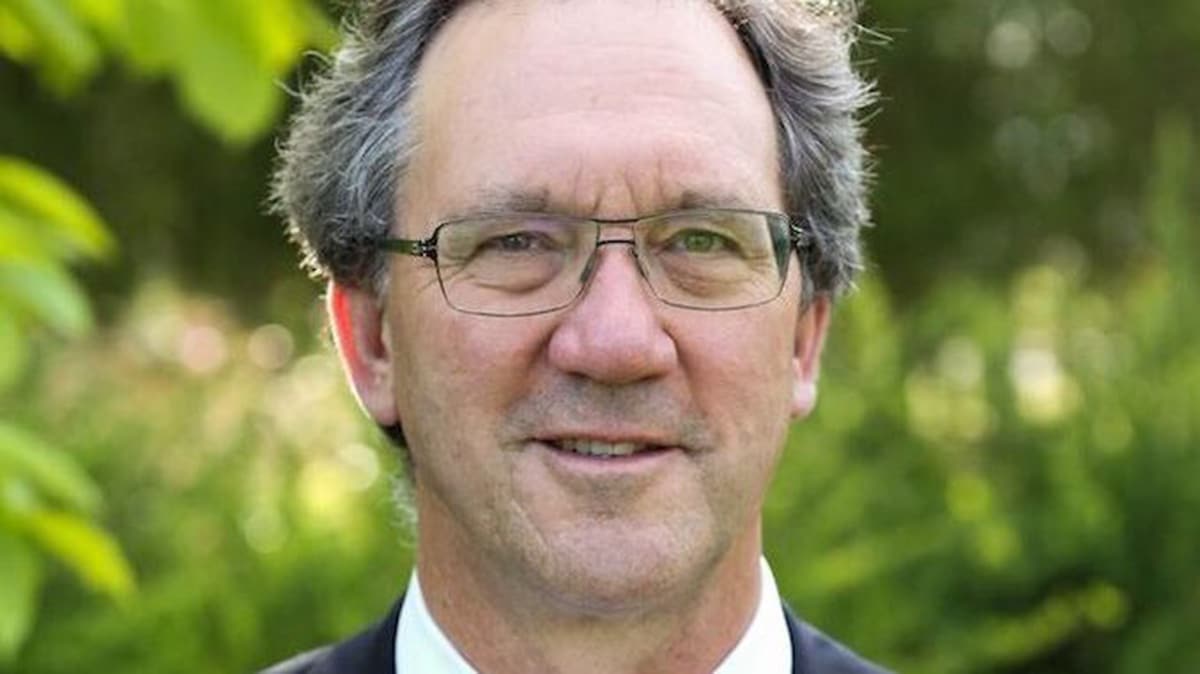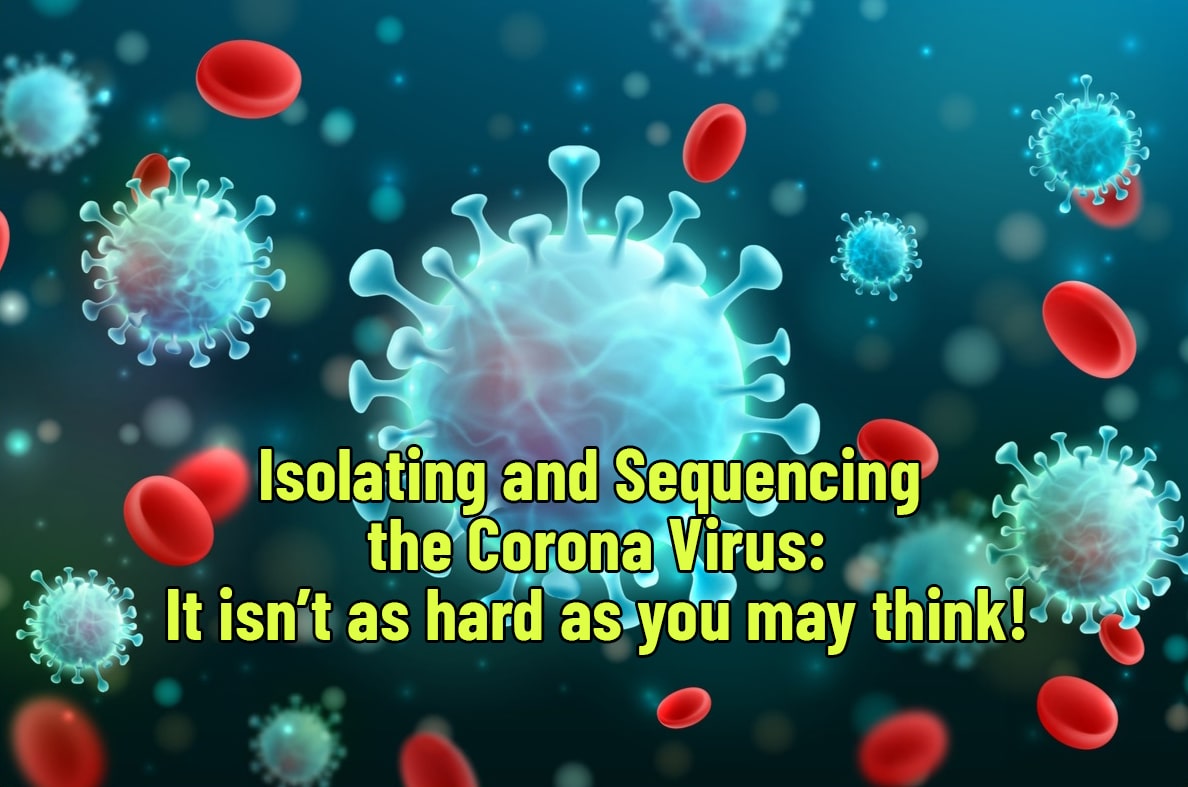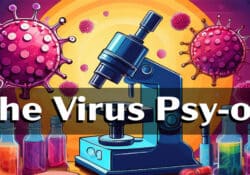
“Why Does It Matter Whether Viruses Exist?”
by D. Alec Zeck | Mar 29, 2025
If you’ve followed me for a while, you’ve probably seen me talk about this quite a bit — and you might already understand why it matters.
But if you’re new here, or only catch some of my content, you might be wondering: what’s the big deal? Why does it matter so much whether viruses exist or not?
I assure you, it matters deeply. And if this idea is completely new to you, I recommend checking out some of my earlier posts or listening to episode 141 of my podcast before diving in.
1. Collapse of the Vaccine Program
If viruses don’t exist as claimed, the entire foundation of vaccination crumbles.
Billions are spent annually developing and distributing vaccines to “protect” against pathogens that have never been demonstrated to exist.
Without viral causation, these interventions become not only ineffective and unsafe, but totally useless and entirely unnecessary.
It would demand a total reevaluation of public health strategies.
2. Exposes the False Dilemma: Lab Leak or Natural Virus
The “gain of function vs. natural origin” debate assumes viruses exist in the first place. But both are based on unproven claims and circular reasoning.
Once you understand this, you realize the entire debate is a distraction from more important questions. Check out episode 40 of my podcast, where I interview Dr. David Martin — widely cited to support gain-of-function claims — who clearly states that there is not, and never has been, a transmissible particle created through such research.
3. Stops the Senseless Culling of Animals
Every year, millions of animals are culled to “stop the spread” of supposed viruses like avian flu.
For instance, since February 2022, more than 166 million birds have been euthanized due to supposed H5N1 outbreaks.
This not only causes immense suffering but also destabilizes ecosystems and food systems. When you understand that PCR primers are developed using genetic material that has never been shown to come from a virus, the entire justification for these cullings collapses under scrutiny. It’s not just unnecessary — it’s an ethical and ecological disaster.
4. We’d Start Looking at the True Causes of Illness
When you stop blaming invisible invaders, you start asking deeper questions like:
What roles do terrain, toxins, trauma, lifestyle, and emotional stress play in disease?
What if symptoms are the body’s intelligent response — not something to suppress, but something to support?
And how many chronic conditions are being misattributed to viruses when the real causes are right in front of us?
5. End the Medical Tyranny
From lockdowns to masks to coerced injections — policies justified by “viral threats” have enabled unprecedented control.
If the foundational premise is false, so is the justification for medical coercion.
Focusing on masks and vaccines is important — no doubt, but without confronting the fraud of virology itself, it’s like whacking at the branches of a tree that keeps growing back. To stop the tyranny at its root, we have to expose the pseudoscience of virology.
6. Overlooking Metaphysical Possibilities
What if illness isn’t just physical — what
if it also reflects emotional, energetic, or spiritual imbalance?
Could symptoms be messengers, not enemies?
Have we been so focused on microscopic particles that we’ve ignored the role of consciousness, intention, and coherence in health?
If we explored these questions seriously, how might it shift our entire understanding of what it means to heal?
7. We Realize the Power of Belief in Health
When the virus illusion dissolves, we start to see just how much our individual and collective beliefs shape our health — for better and for worse.
Fear, expectation, and suggestion can all manifest physically, while trust, coherence, and inner alignment can promote healing.
The placebo and nocebo effects, mass psychogenic illness, and social contagion aren’t side notes — they’re central clues. This realization puts us back in the driver’s seat of our well-being.
8. We Begin Studying the Biofield more Seriously
If diseases aren’t caused by microbes, we need to explore the energetic systems that regulate the body.
Modern science admits we can only perceive about 0.0035% of the electromagnetic spectrum — what might we be missing in that vast unknown? The biofield — long dismissed by mainstream science — may hold the key to understanding health and coherence.
Could there be subtle forms of communication and regulation happening on an energetic level that we’re only beginning to grasp? If so, are we ignoring one of the most fundamental layers of human health and biology? I discuss the biofield on these three episodes of my podcast:
Episode 5, The Human Biofield with Eileen McKusick
Episode 88, Tuning the Zodiac & Balancing Through Sound featuring Eileen McKusick
Episode 121, Ez-Water, Aether, & The Biofield featuring Carrie Bennett
9. Reclaim Trust in the Body’s Innate Intelligence
The mainstream view often frames the body as vulnerable, constantly under threat from external invaders.
But what if there’s another way to see it— not as flawed, but as intelligent and responsive?
Could symptoms, no matter how unpleasant, be adaptive processes — part of the body’s effort to restore balance?
Trusting that inner intelligence may be one of the most important shifts we can make.
10. We’d Stop Fearing Others Who are Sick
The belief in contagious viruses creates social division and isolation.
If “infection” is misunderstood, there’s no reason to fear friends, family, or strangers simply because they’re unwell.
This could restore human connection, compassion, and trust in our body’s ability to adapt.
We’d stop pathologizing what are likely natural detox processes.
11. It Sharpens Your Lens on Other Unproven Assumptions
Once you see the lack of evidence behind virology, you begin to recognize similar patterns in other areas of “science” and medicine.
You start asking: what else have I accepted without question? Is the same circular reasoning, groupthink, or institutional dogma hiding behind other “consensus science”?
It teaches you to ask better questions, understand logic and empiricism, and stop outsourcing your critical thinking.
12. It Exposes the Limits of Modern “Science”
Much of what we call “science” today isn’t science at all — failing to follow the scientific method and actually validate cause-and-effect claims.
Virology is a prime example: no proper controls, no isolation, no direct evidence — just assumptions and models treated as fact.
It’s absurd to believe that what happens in an artificial lab environment can reveal, with certainty, the inherent intelligence and complexity of nature. True science should observe nature, not try to dominate or simulate it.
13. It Reframes How We View History
If the virus model is entirely unproven, then how do we reinterpret events like the 1918 flu, polio, HIV/AIDS, or COVID?
What if those events were driven by toxic exposures, pharmaceuticals, war trauma, mass psychogenic illness, nnEMFs, or starvation — not invisible particles?
This reframing doesn’t just change our understanding of disease — it changes how we understand power, policy, and propaganda.
14. It Breaks the Spell of Medical Authority
The virus narrative has handed massive control to centralized medical systems and unelected global institutions. If that narrative is false, so is their claim to authority.
It also forces you to question “experts” more broadly — if they got this wrong, what else have they misled us about? And who are they to tell you how to handle your own health, your body, or your life?
15. It Calls Us Back to Harmony With Nature
When you remove the concept of viral invaders, you also remove the idea that nature is something to fear or control.
We stop waging war on the very environments and ecosystems we’re meant to live in harmony with. Health becomes about rhythm, resonance, and relationship — with light, water, food, movement, community, and the Earth itself. Symptoms are no longer threats, but intelligent signals inviting us back into alignment with our natural design.
This shift reconnects us with the wisdom of the body and the intelligence of life.
16. It Reveals the Power of Story to Shape Reality
The virus myth is a story — and a very effective one.
It shaped worldwide behavior, justified authoritarian policies, and rewrote public consciousness.
If this story can manipulate billions, what other narratives are shaping our worldview?
Understanding the power of narrative helps us reclaim our perception — and write a new one.
17. It Shifts the Entire Paradigm of Health and Reality
This isn’t just a scientific debate — it’s about how we see life itself.
Exposing the failed viral hypothesis breaks the spell of fear and opens space for deeper exploration on health and the nature of reality.
It’s allowed me to remember that health is our natural state, and that reconnection might be the most important medicine of all.






0 Comments